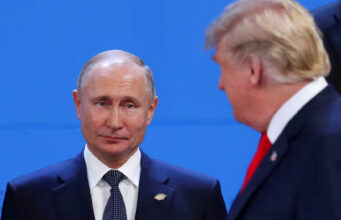South Korea has confirmed it is in talks to join AUKUS, the defence partnership bringing together Australia, the UK and the US to deliver nuclear submarines to Canberra.
But Korea’s Defence Minister Shin Won-sik clarified that “We also discussed the possibility of partnering with AUKUS Pillar 2,” meaning no nuclear subs for Seoul. But a big yes to developing hypersonic weapons, drones and other advanced technologies.
“We support AUKUS Pillar 2 activities and we do welcome that members are considering Korea as an AUKUS Pillar 2 partner,” the defence minister said.
AUKUS partners are known to be interested in taking advantage of South Korea’s tech prowess in various fields. It has an impressive defence industry and recently unveiled its own home made jet fighter. Other countries including India have bought its self-propelled gun the Vajra, testimony to Seoul’s innovation and technical advancement.
Last month, AUKUS members confirmed they were working to get Japan on board, again in Pillar 2 defence projects. Japan too has deep levels of technology which has seen it design and produce state of art submarines, Landing Platform Dock vessels and aircraft. It is opposed to nuclear weapons given the history of Hiroshima and Nagasaki, but faces relentless pressure from China on its maritime frontiers.
China had vehemently opposed the AUKUS when it was unveiled three years ago. It was specifically proposed by the US to curtail China’s influence in the Indo-Pacific and the move to transfer US nuclear submarine technology to Australia, raised hackles even further.
Earlier this year, New Zealand also said it was considering joining AUKUS. Wellington with its long history of being nuclear free, is also unlikely to join Pillar 1, more likely they will opt for Pillar 2. But officials confirmed that a decision was a long way ahead even though it sees security risks growing in its neighbourhood in the Pacific and globally.
















